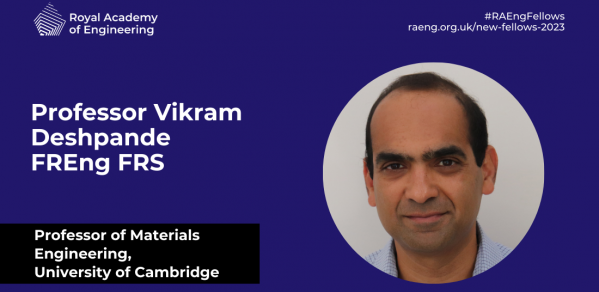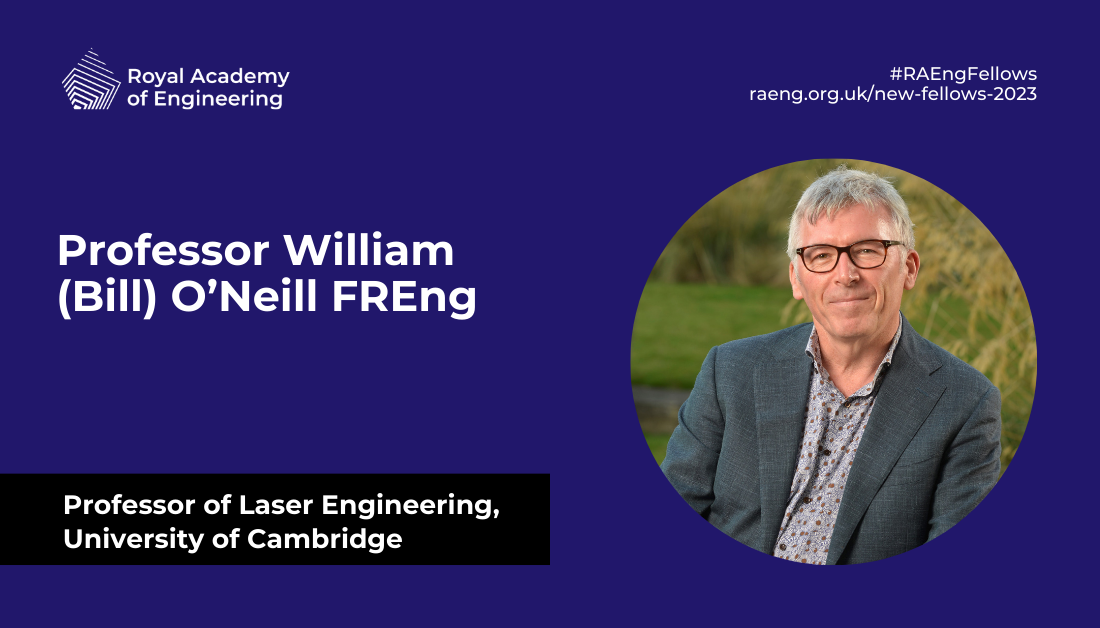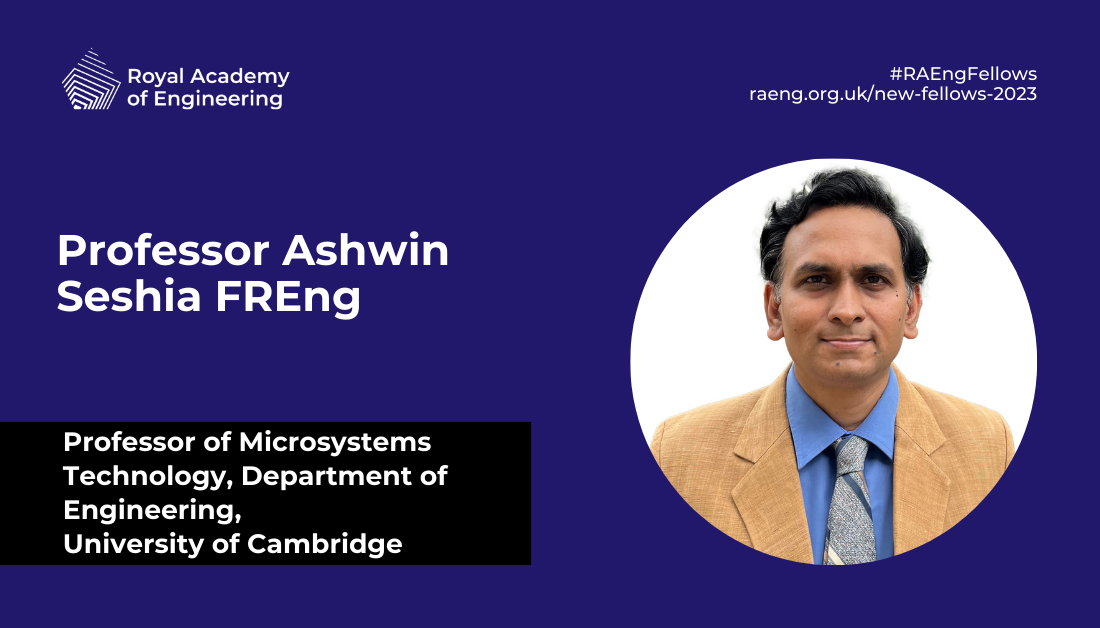
Professors Vikram Deshpande, Bill O'Neill and Ashwin Seshia have been announced Fellows of the Royal Academy of Engineering in recognition of their outstanding and continuing contributions to the profession.
We welcome to our Fellowship an inspiring group of people who are harnessing their creativity, courage and commitment to drive positive change in the world around us
Professor Sir Jim McDonald President of the Royal Academy of Engineering
Professor Vikram Deshpande
Vikram Deshpande, Professor of Material Engineering, has made seminal contributions to the mechanics of engineering materials. The scope of his impact spans design of high-strength, lightweight micro-architectured materials, to the invention of blast-resistant sandwich panels in commercial and military ship hulls, and the prediction of the multi-physics response of a wide range of engineering materials including soft and active solids.
He has made fundamental discoveries of direct industrial application by combining novel experiment with deep theoretical insights on material and structural response. His work defines the modern frontiers of mechanics with an impact on engineering science.

Professor Bill O'Neill
Bill O’Neill, Professor of Laser Engineering, is widely acknowledged as a leading expert in the field of high-power lasers and their use in materials processing. He founded the Centre for Industrial Photonics at Cambridge University, focusing on delivering new laser-based manufacturing solutions to industry.
His innovations have led to successful industrial applications in: metal-based additive manufacturing; biomedical engineering; advanced coatings; carbon nanotubes; ultra-fast holographic imaging; high-strength super magnets; in-process diagnostics; and ultraprecision engineering. Inspired by rapid development of lasers in the 1960s and 1970s, he established a distinguished research career that led to a series of roles as engineer, educator and entrepreneur.
He has founded two Cambridge spinouts and is a board member of the Laser Museum of America.

Professor Ashwin Seshia
Ashwin Seshia, Professor of Microsystems Technology, has made significant contributions to the fields of microelectromechanical systems (MEMS) and sensor systems. His research has led to the design and implementation of high-performance inertial sensors, differential gravimeters, and energy-harvesting-enabled wireless sensing solutions, with technology translation through two spin-off companies.
His translational leadership has led to the development of cutting-edge sensor technologies, enabling a diverse spectrum of applications including the remote condition monitoring of industrial equipment, geotechnical surveying, carbon sequestration monitoring, and inertial navigation. He has also led several higher education and research outreach and dissemination activities internationally.
Alumnus Dr Sabesan Sithamparanathan has also been announced as a Fellow of the Royal Academy of Engineering. Sabesan is Founder and President of PervasID, a company providing best-in-class passive Radio Frequency Identification (RFID) reader systems for automating inventory and asset tracking.
The Royal Academy of Engineering have elected 73 leading figures in the field of engineering and technology to its Fellowship.
The group consists of 60 Fellows, eight International Fellows and five Honorary Fellows, each of whom has made exceptional contributions to their own sector, pioneering new innovations, leading progress in business or academia, providing high level advice to government, or promoting wider understanding of engineering and technology. This year’s new Fellows continue to reflect the Academy’s ongoing Fellowship Fit for the Future initiative announced in July 2020, to drive more nominations of outstanding engineers from underrepresented groups ahead of its 50th anniversary in 2026. This commits the Academy to strive for increased representation from women, disabled and LGBTQ+ engineers, those from minority ethnic backgrounds, non-traditional education pathways and emerging industries, and those who have achieved excellence at an earlier career stage than normal.
The new Fellows will be formally admitted to the Academy at a special ceremony in London on 28 November, when each Fellow will sign the roll book. In joining the Fellowship, they will lend their unique capabilities to achieving the Academy’s overarching strategic goal to harness the power of engineering to create a sustainable society and an inclusive economy for all.
Professor Sir Jim McDonald FREng FRSE, President of the Royal Academy of Engineering, says:
“Engineering is everywhere, but nowhere the same, and our new Fellows represent the great breadth and diversity of engineers who are striving to address some of the world’s most complex challenges – benefiting society and the economy in the process. From next generation power networks and water systems to quantum computing and artificial intelligence, our new Fellows are shaping the future.
“We live in an era of rapid change across our communities, our country, and of course our planet. Today we welcome to our Fellowship an inspiring group of people who are harnessing their creativity, courage and commitment to drive positive change in the world around us and we look forward to their contribution to our work.”

